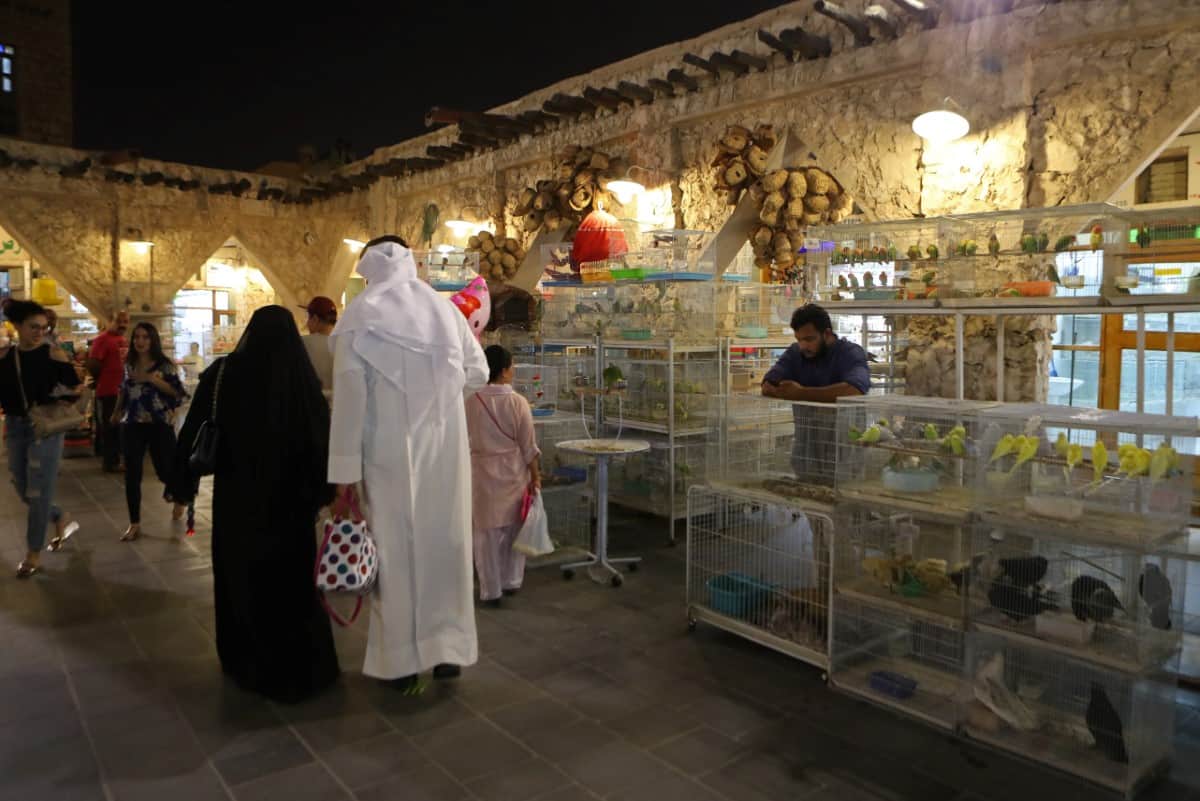Doha, Qatar – Ramadan has arrived amidst an unusual global economic situation, characterized by inflation, high commodity prices, supply chain disruptions, rising financing and borrowing costs, and other factors putting pressure on household budgets.
Despite the expectations of a slowdown in growth in Arab and Islamic countries during the holy month, experts have contradicted these predictions. They emphasize that there is no correlation between Ramadan and a slowdown in economic growth or a rise in prices and inflation.
On the contrary, Ramadan contributes to revitalizing economic growth, as many investment and industrial companies make huge profits from the increased demand for their products during the holy month.
On the impact of Ramadan on the economies of Muslim and other countries and on the prices of commodities, experts agreed that many investment and industrial companies make huge profits as a result of the increased demand for their products during the holy month.
Despite the waves of stagnation and recession that the world previously witnessed, especially in Europe, Islamic companies and restaurants continued to work well, with an increase in demand for halal food. Ramadan created commercial activity in Western countries and other countries with Muslim population.
Professor of Accounting at Qatar University Rajab Abdulla Al Esmail said that consumption rates in Ramadan are very high. Afterward, there is Eid which revives the movement of the markets and increases sales compared to regular days and months.

Al Esmail added that it is very natural for the rate of consumption to rise during Ramadan, but there is a tradition of wrong consumption habits, adding that a balance between income and actual needs, away from extravagance and waste, is required.
In light of the current global conditions and the accompanying events that also put pressure on economies and the pockets of families, Al Esmail stressed the importance of distinguishing between necessary and luxury needs, while avoiding extravagance.
Al Esmail explained that two people receiving the same salary every month might have a difference in the standard of living due to disparity in managing expenses and indebtedness. Bank loans burden families, so they should be avoided as much as possible, especially if they are spent on consumerism; thus, adjusting financial capabilities and investing in real estate and others is necessary in order to adapt to emergency economic crises after retirement. Investment provides good income, which contributes to improving the quality of life in the future.
On the impact of Ramadan on price hikes and inflation, he pointed to the alternatives available in the local markets and the various options at different prices, adding that our local market is open, prices are available electronically, and it is possible to compare them. All these things push merchants to present their best promotional offers to attract customers, throughout the holy month, which increases the competitiveness of the markets.
Chairman of Qatar Consumers Complex Companies Ali Hassan Al Khalaf said that it is customary to prepare for Ramadan early, adding that purchasing activity usually increases this month, and the entire market is booming in light of the prosperity of life.

He added that spending doubles in Ramadan and the demand for goods increases, which is very natural. Ramadan is an economic season as purchases vary from one individual to another and goods are exchanged as gifts.
Regarding prices, he pointed to what the authorities are doing in terms of organizing and monitoring the movement of about 500 basic commodities, which contribute to the stability of their prices throughout Ramadan, adding that price increase may appear to be a ‘healthy’ phenomenon as it is necessary for the merchant, encouraging him to bring more commodities, while it is considered normal for the consumer, as more commodities mean lower price.
Regarding the perception of slow movement and weak production in Ramadan, he said that it is not true, especially as everyone is waiting for the month because the commercial activity flourishes and grows during it, contributing to lowering prices due to the large quantities of goods coming to sales outlets. This applies to all commodities, including vegetables and fruits, which cannot be stored in the first place, he added.
Financial analyst Walid Al Fuqaha believes that Ramadan comes this year in light of exceptional economic conditions, which the world has not witnessed in 40 years, adding that the holy month is usually associated with increased consumption and spending, driven by a group of cultural and religious factors, but disruption of supply chains may raise the prices of food and beverages, which are the most important components of the consumer price index.
He added that the focus is on consumer behavior. From a psychological point of view, events lead to the emergence of emotional contagion, which is people’s tendency to adopt the feelings and behaviors of those around them, as consumer behavior is affected by cultural factors, customs, marketing campaigns, advertising, and competitions of merchants and suppliers, which put pressure on the consumer’s behavior and changes it significantly within a short period, in comparison to the volume of marketing campaigns per day, in light of the development of electronic marketing methods, which may eventually affect price levels and lead to an imbalance in supply and demand during the month.
To address this, Al Fuqaha believes that consumers can take effective steps in managing spending, avoiding waste, setting a budget for purchase, avoiding impulsive buying, and choosing local merchants who offer fair prices and transparent business practices.
In terms of control practices, he stressed their importance in maintaining the stability of markets and prices, emphasizing the importance of developing promotional plans for consumers and providing programs to engage in more responsible and sustainable consumption patterns, by sharing food, urging community service, and participating in social responsibility programs during the month.
He called for a better understanding of consumer psychology during festive seasons and religious occasions, such as the month of Ramadan, to develop effective strategies and plans that promote sustainable development, increase transparency and accountability in pricing and inventory management, with the need to adopt initiatives that motivate companies that implement responsible practices towards society.
He highlighted the profits achieved by companies, as their revenues and gains multiply during the holy month as a result of the increased demand for their products, as Ramadan is an engine for markets and a catalyst for their general performance.
For example, the US witnessed the worst inflation wave in 1983, and Europe also witnessed in recent decades many waves of stagnation and deflation, such as the mortgage crisis and others, but Islamic companies and restaurants continued to work well, accompanied by an increasing demand for halal food. This is proof that Ramadan brings about a qualitative commercial activity in the countries where Muslims live, and not an economic slowdown as some believe.







